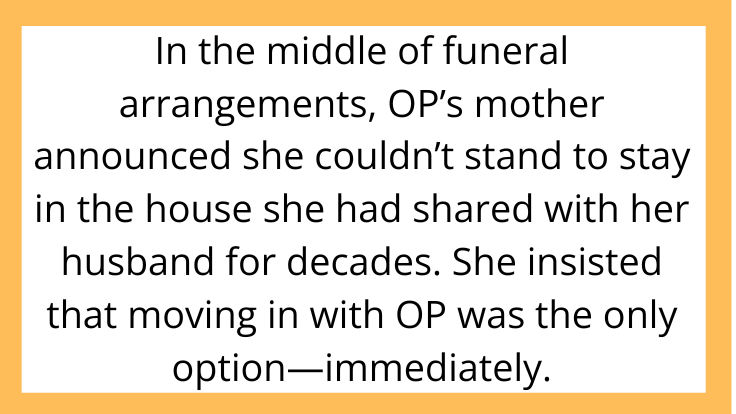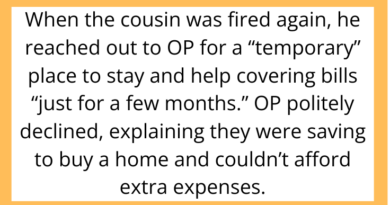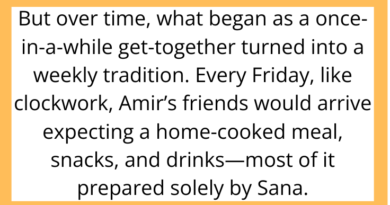AITAH for Refusing to Let My Mother Move in With Me After My Dad Passed Away?
Losing a parent is devastating. But sometimes grief can blur the line between helping family and sacrificing your own well-being. That’s exactly what happened to one Reddit user when their mother asked to move in—and they said no.
This story dives into guilt, generational expectations, and whether you’re truly obligated to take in family when you’re just trying to survive yourself.
The Backstory: A Sudden Loss and a Big Ask
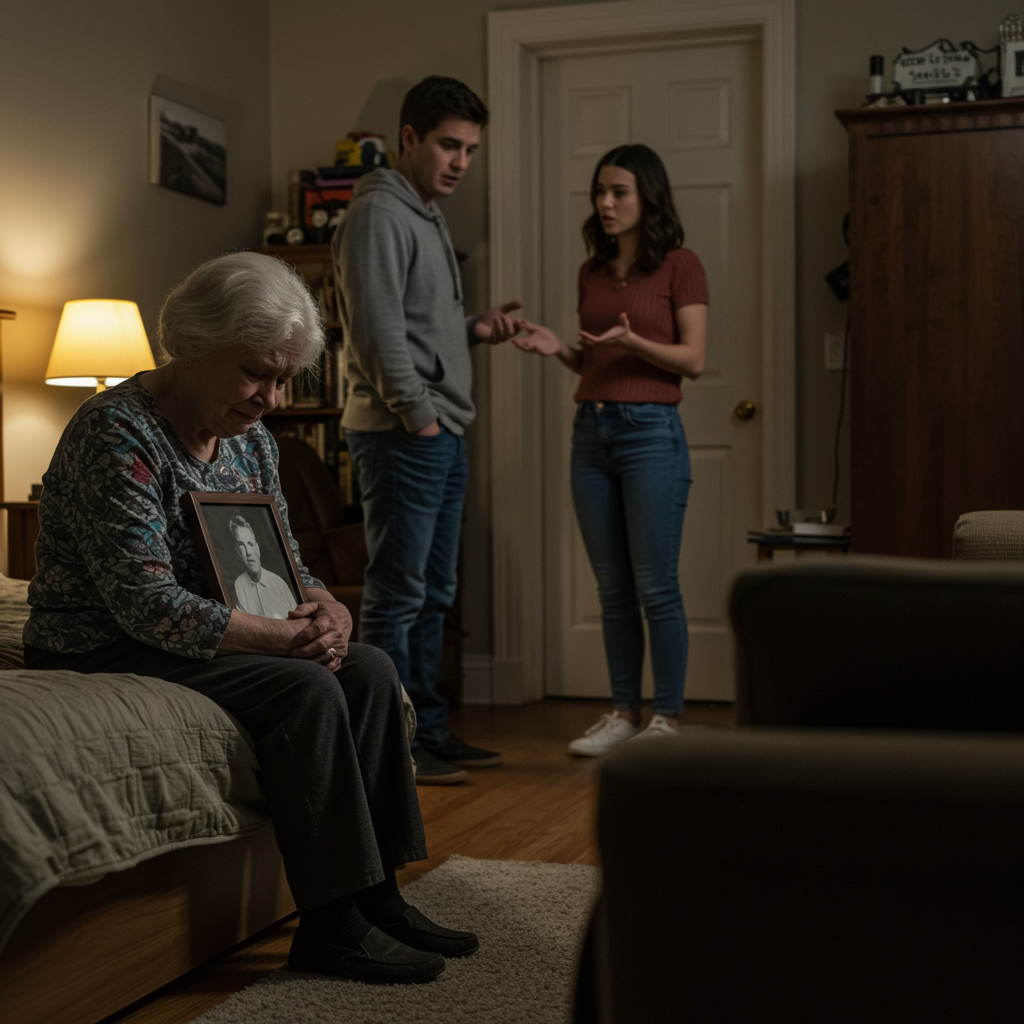
The Original Poster (OP) shared that their father passed away unexpectedly after a heart attack. The loss shook the entire family.
In the middle of funeral arrangements, OP’s mother announced she couldn’t stand to stay in the house she had shared with her husband for decades. She insisted that moving in with OP was the only option—immediately.
The problem? OP lives in a one-bedroom apartment, works two jobs to make ends meet, and has a partner who also lives there. There was no spare room, no extra bathroom, and no way to accommodate another person without displacing someone.
OP suggested alternatives: staying temporarily with other family members, renting a small apartment nearby, or getting counseling to help process the grief. The mother refused all options.
When OP held their ground, other relatives accused them of abandoning their mother in her time of need.
Now OP is left wondering: Am I the jerk for saying no?
Emotional Support vs. Emotional Sacrifice

When Grief Becomes a One-Way Street
Losing a spouse is unimaginable. Everyone agreed OP’s mother needed support. But support doesn’t always mean surrendering your living space, privacy, and stability.
Reddit users pointed out that it sounded like the mother was trying to fill the hole left by her husband by leaning entirely on OP—without considering their own limitations.
It’s one thing to help. It’s another to give up your life so someone else doesn’t have to feel alone.
Setting Boundaries Doesn’t Mean You Don’t Care
Many people feel that saying no to family is heartless. But in reality, boundaries are a way to protect relationships.
If OP had agreed, the resentment and stress of living together in cramped conditions could have damaged their bond permanently.
Reddit’s Verdict: Not the Jerk
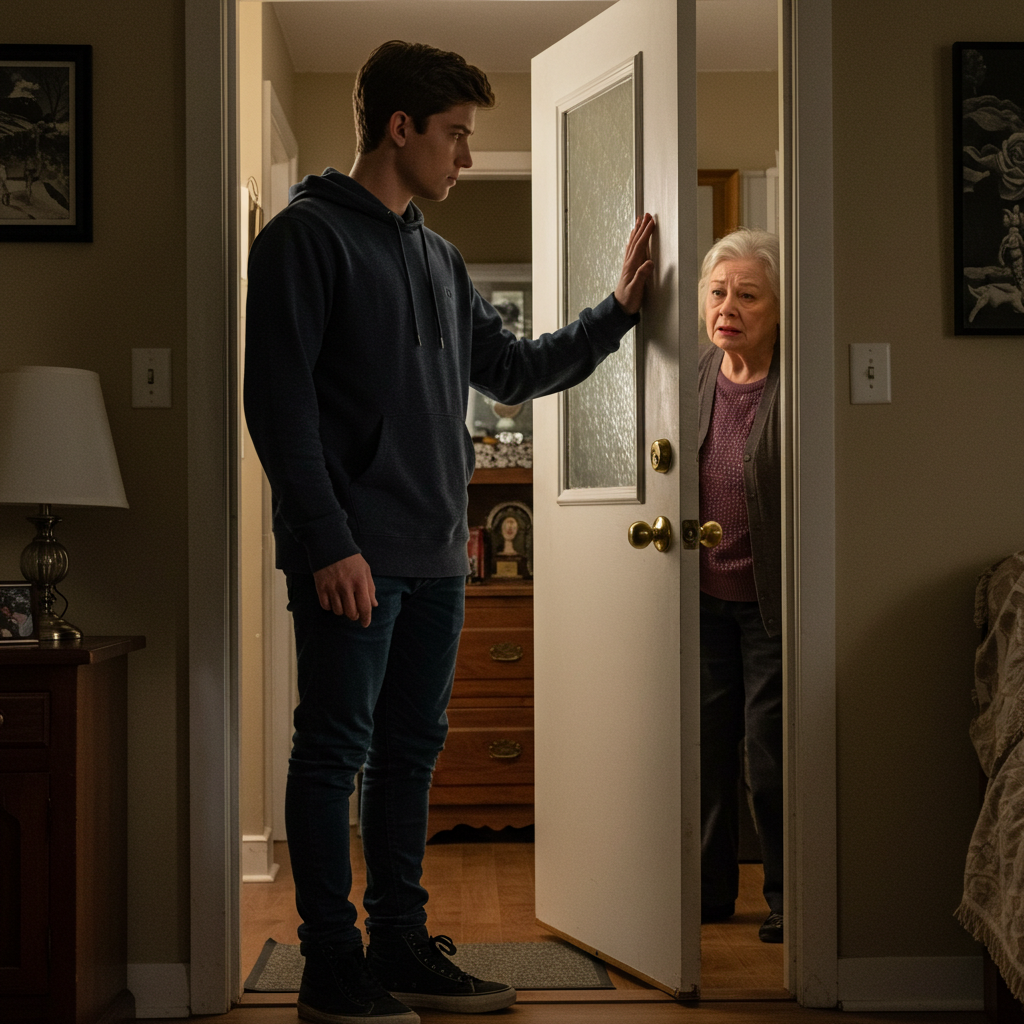
The AITAH community was overwhelmingly supportive. Here are some standout reactions:
“You’re not a grief counselor or a spare room. You’re a person with your own needs.”
“Boundaries are healthy, especially when emotions are high.”
“Your mom has other options. You are not her only lifeline.”
People also noted that other relatives who were criticizing OP weren’t offering to take the mother in themselves—a classic sign of guilt projection.
The Pressure to Parent Your Parents

When Roles Reverse
It’s common for adult children to feel obligated to become caregivers. But it’s also important to remember: you can love your parent without becoming their replacement spouse or full-time caretaker.
OP’s mom was experiencing profound grief. But grief doesn’t entitle someone to override your autonomy or expect you to sacrifice your well-being.
Why It’s Okay to Say No
Many commenters shared personal stories of agreeing to take in a parent out of guilt—only to end up overwhelmed, financially drained, or estranged.
Saying no isn’t selfish. It’s honest.
Navigating the Guilt Complex

The Emotional Blackmail
One of the hardest parts of this situation wasn’t just the ask—it was the fallout.
Extended family called OP cold-hearted and ungrateful. Some said, “She gave you life—she deserves your home.”
But emotional blackmail doesn’t make an impossible situation any more possible.
The Reality Check
No one is obligated to destroy their own stability for someone else’s comfort. You can help coordinate support without sacrificing your mental health and your relationship with your partner.
A Possible Middle Ground?

Support Without Sacrifice
Some Redditors suggested compromise options OP could explore:
-
Paying for a short-term rental near OP’s home
-
Visiting regularly to keep Mom company
-
Helping her join grief support groups
-
Staying over a few nights per week (if feasible)
These approaches can balance compassion and personal boundaries.
But ultimately, OP had to choose what was sustainable—and in this case, a live-in arrangement simply wasn’t.
Final Thoughts: Boundaries Are Not Betrayal

In the end, the AITAH consensus was clear: You are not the jerk.
Losing a parent is brutal. But you don’t have to give up your life to help someone else grieve.
Setting a boundary isn’t a rejection of your mother—it’s an act of respect for your own limits. And sometimes, the most loving thing you can do is be honest about what you can’t handle.
